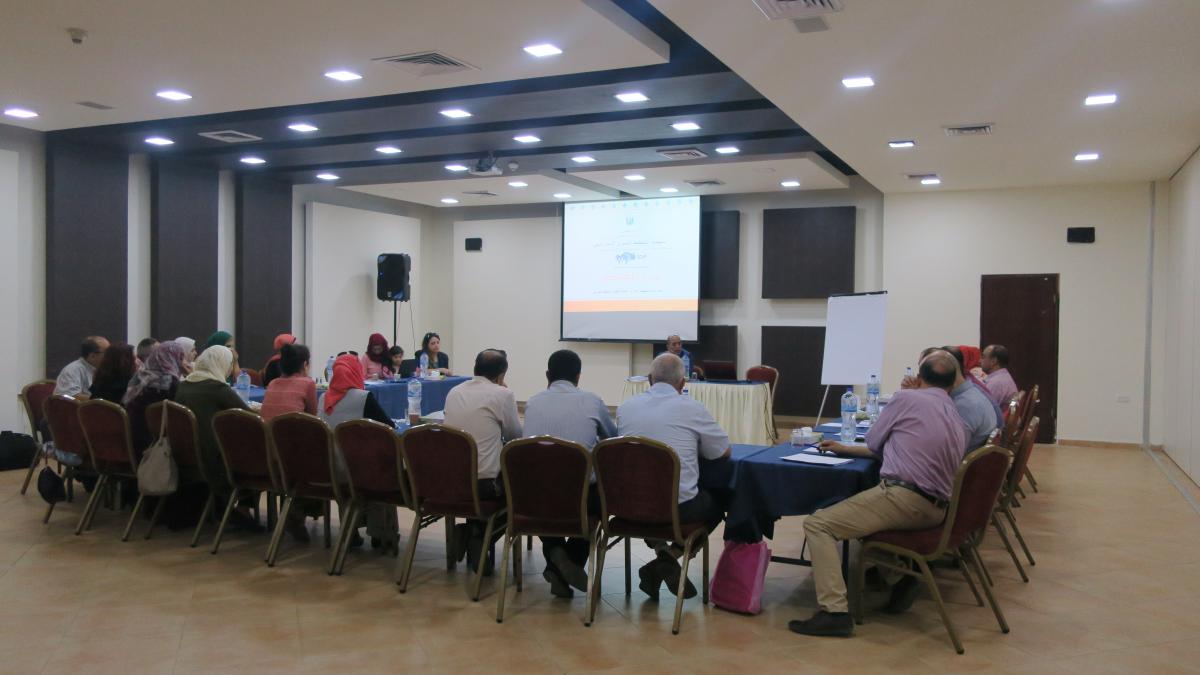Opzoeken
2130 - 2145 van 2520 nieuws bekijken
-

Le Forum Santé
Aïda SECK | 26/09/2017
Revivez les moments forts du Forum Santé au Sénégal, rencontre internationale sur les Innovations pour la Couverture Santé Universelle.
-

Les ouvrages hydro-agricoles dans le bassin arachidier au Sénégal - vidéo du projet
Guido COUCK | 25/09/2017
Pour améliorer de façon durable la productivité agricole dans le bassin arachidier, le projet de Bassins de Rétention et de Valorisation de Forages (BARVAFOR), financé par le Sénégal et la Belgique, accompagne les communes bénéficiaires à disposer de ressources en eau plus importantes pour développer de nouveaux moyens de production modernes.Le projet répond ainsi au double enjeu du changement climatique et de l’augmentation de la production vers une réelle sécurité alimentaire au niveau national. Il vise plus particulièrement à renforcer la production agro-sylvo-pastorale dans les régions de Diourbel, Fatick, Kaffrine, Kaolack et Thiès par le développement de la petite irrigation.L’intervention réalise des bassins de rétention des eaux de ruissellement (digues semi-filtrantes et digues de retenue), des digues anti-sel pour protéger et récupérer des terres salées, et le rééquipement de forages dans l’optique d’une valorisation agricole du surplus d’eau mis à disposition.
-

AFRICA CODE WEEK TRAINING OF TRAINERS
William YEKA | 25/09/2017
Coding is a blue colour skill essential for the 21st century workforce. This year, BTC Uganda is supporting the extension of Africa Code Week to Vocational Training Institutions (VTIs). Check out what transpired during the Africa Code Week Training of Trainers (TOTs) at Makerere University in Kampala.
-
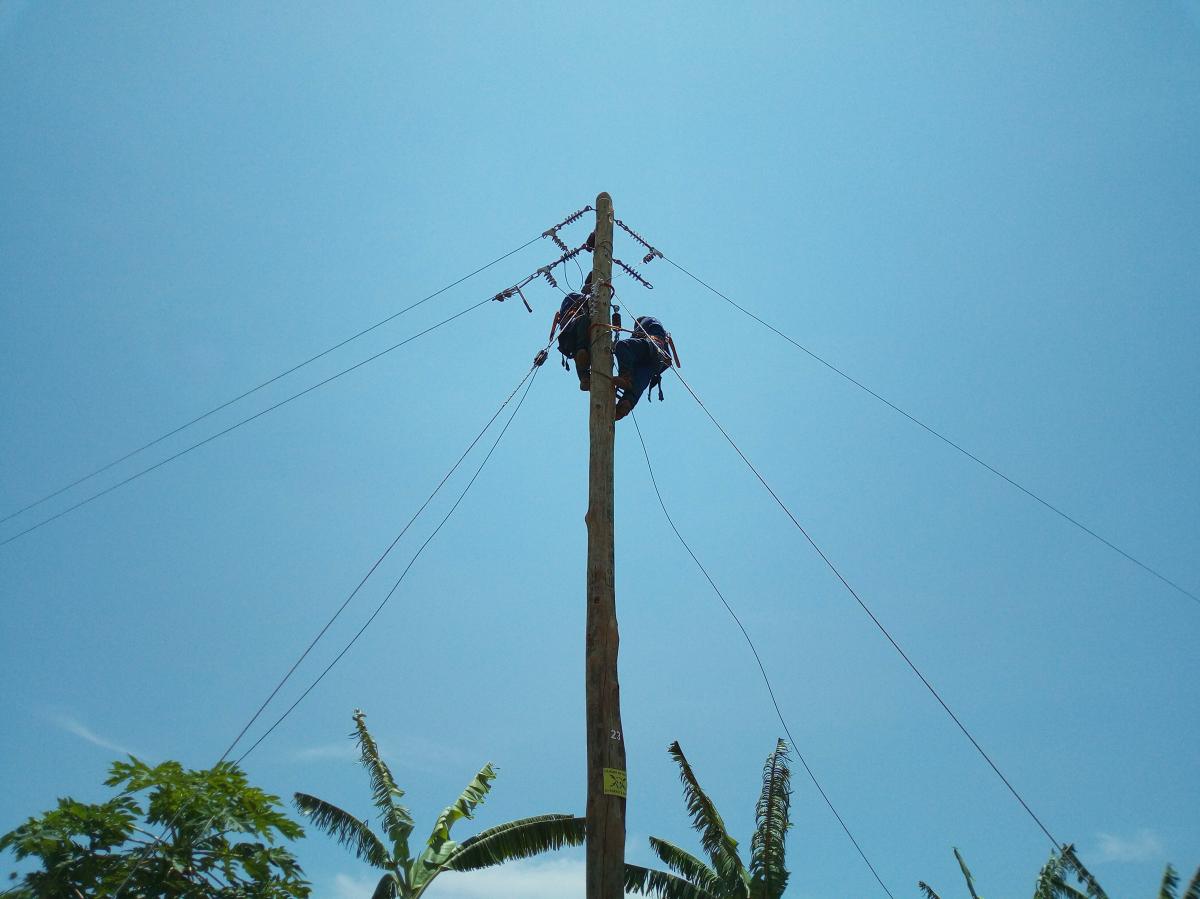
Stringing of power lines in Rwamagana District
Alexis DE HERDE | 25/09/2017
In Rwamagana District (Eastern Province), the Tunisian contractor STEG began last week the stringing of power lines for the Be EARP project. Be EARP is implemented by BTC, in partnership with the Energy Development Corporation Limited (EDCL) of the Rwanda Energy Group (REG) and aims to provide sufficient, reliable and affordable on-grid electricity services for households, priority public institutions and businesses. The first connections are expected to arise in the last quarter of 2017!
-
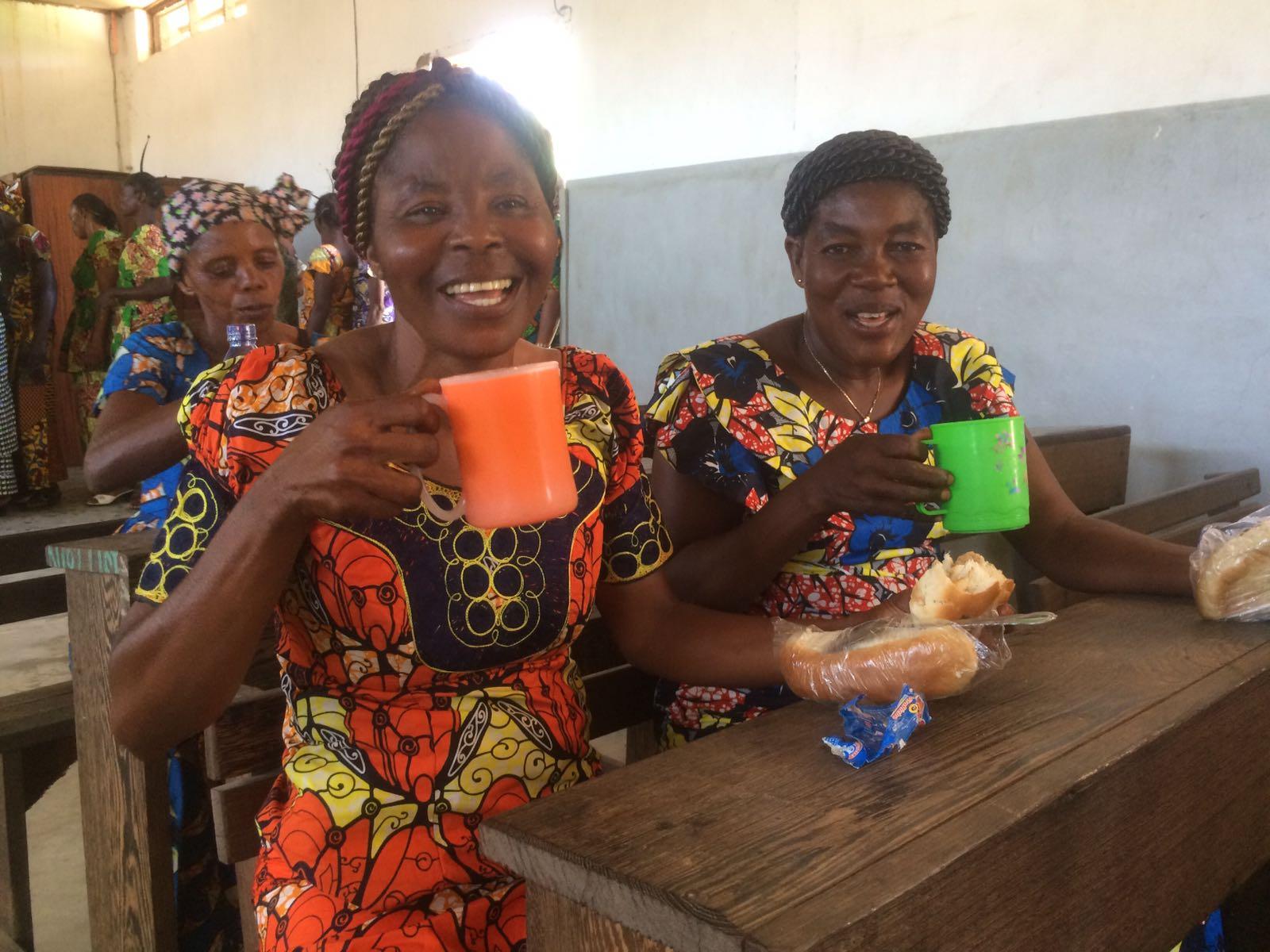
A Isangi, les organisations paysannes sont renforcées en gestion financière et administrative.
Julie CLAASSENS | 20/09/2017
Fin juillet, l’antenne de la CTB basée dans le territoire d’Isangi, situé à 127 de la ville de Kisangani, a organisé un atelier de renforcement des capacités au bénéfice des délégués des organisations paysannes. La formation ciblait principalement les secrétaires et les caissiers de ces organisations, mais aussi les animateurs endogènes, les animateurs ruraux et les chefs de cellules du développement rural des secteurs. Les trente participants, dont dix femmes, ont eu droit à différents modules portant notamment sur la tenue des documents comptables et des supports de gestion administrative comme les statuts, le règlement intérieur, les fiches d’adhésion des membres, etc. L’objectif visé était d’améliorer le fonctionnement des organisations paysannes et la qualité des services qu’elles rendent à leurs membres, ce qui pourra avoir comme conséquences positives l’augmentation de la production agricole et du revenu des ménages, et l’amélioration de l’économie locale, étant entendu que la grande majorité d’organisations paysannes vit des travaux des champs.Comme témoignait un animateur sur place : « Il ne suffit pas d’adopter les bonnes techniques culturales, mais encore faut-il que les organisations paysannes soient bien gérées sur les plans financière et administrative pour qu’elles puissent produire plus et induire ainsi le développement économique local »
-

Une étroite collaboration public-privé en Haut-Katanga porte ses fruits!
Julie CLAASSENS | 20/09/2017
En Haut-Katanga, le projet Edukat accompagne des lauréats des écoles techniques à la recherche d'emploi et cela en étroite collaboration avec le secteur privé. Tout d'abord les lauréats sont sélectionnés sur base de critères définis. Ensuite, ceux qui sont retenus assistent à des séances d'information et à des entretiens individuels sur l'emploi salarié et l'auto-emploi. Ultérieurement, ils suivent des formations en recherche d’emploi et, pour les lauréats entrepreneurs, en formulation d’un business plan. Ils acquièrent des compétences très concrètes, notamment comment écrire un CV, par où commencer afin de trouver un travail ou mettre en place leur propre business. De cette manière, petit à petit, les lauréats se préparent à l’environnement de l’entreprise et au marché de l’emploi. L’avant-dernière étape est l’amélioration de certaines de leurs compétences techniques et enfin, cerise sur le gâteau, le stage professionnel que ces lauréats effectuent dans des entreprises sélectionnées. Vu que le Haut-Katanga est une région minière, certaines de ces lauréats font ce stage dans une entreprise du secteur des mines, comme dans le film ci-dessus. En deux ans, Edukat a accompagné environ 200 lauréats et leur nombre croît chaque jour.
-
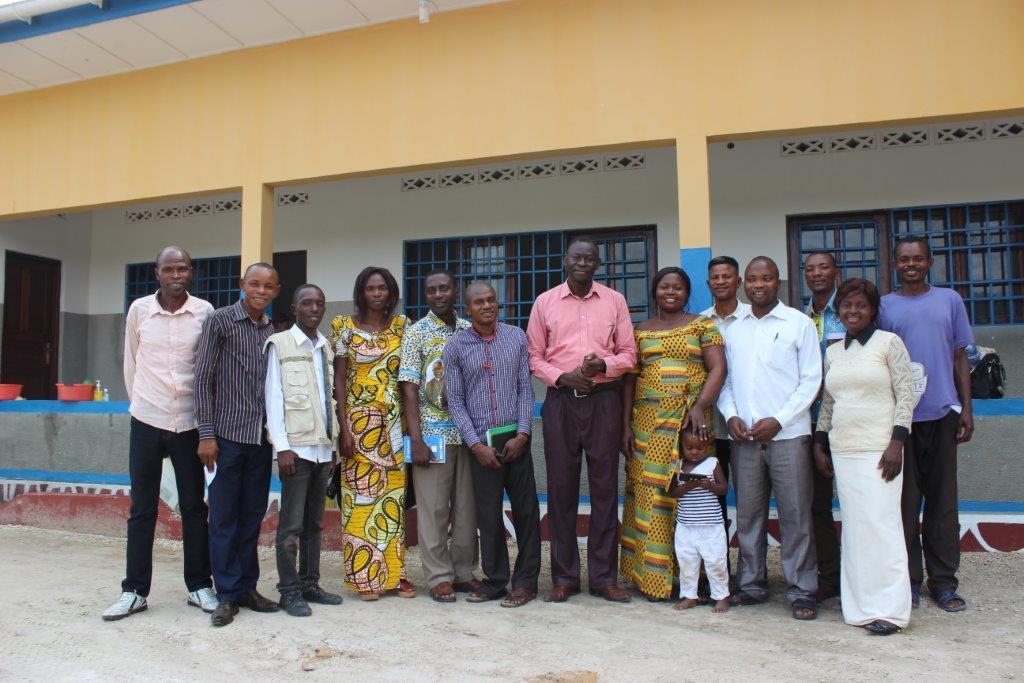
Les radios partenaires de la CTB renforcent leurs capacités en matière de vulgarisation agricole, un beau exemple de C4D.
Julie CLAASSENS | 19/09/2017
Dans le cadre de l’appui au développement agricole, le Programme de Développement Agricole dans la Tshopo prévoit des activités de vulgarisation des techniques agricoles innovantes et plus respectueuses de l’environnement. Et les meilleurs outils de communication disponibles afin de réaliser ces activités sont les radios communautaires. Au cours des mois précédents, les journalistes et les producteurs des cinq radios communautaires ciblées dans les territoires de Banalia, Isangi et Opala ont pris part à un atelier portant sur la production d’émissions de vulgarisation agricole. Au total soixante personnes ont bénéficié de cette formation qui s’est déroulée sur cinq sites correspondant aux cinq antennes de la CTB Tshopo, c’est-à-dire: Banalia, Isangi, Opala, Yanonge et Yatolema. Sur chaque site, douze participants ont été ciblés dont dix animateurs de radio et deux partenaires au développement, comme l’Inspecteur Territorial du Développement Rural, l’Inspecteur Territorial de l’Agriculture, le Chef de Cellule du Développement Rural de Secteur et l’Agronome de Secteur.L’atelier avait un double objectif: d’une part renforcer les équipes des radios en production d’émissions de vulgarisation et d’autre part préparer les agronomes de la CTB et les partenaires concernés à l’animation desdites émissions en tant que personnes ressources.Animé par le chargé de communication de la CTB Tshopo, chaque atelier comportait une partie théorique et une partie pratique. D'abord les participants ont suivi une présentation sur la vulgarisation, la vulgarisation agricole et la démarche à suivre dans la production d’une émission à la radio. Ensuite, ils ont été briefés sur quelques principes de communication dont il faut tenir compte pour faire réussir la vulgarisation.Enfin, pour allier la théorie à la pratique, le groupe a été scindé en deux et chaque équipe a eu à produire une émission qui a été soumis à la critique de l’ensemble du groupe. L’objectif était d’amener le groupe cible à maîtriser la démarche à suivre et la conduite d’une émission en studio.Les deux émissions produites ont été testées sur un groupe réduit de membres d’organisations paysannes avant de les diffuser à grande échelle.Après cet exercice, les espoirs sont permis de voir les radios partenaires produire et diffuser des émissions de qualité en langues locales sur des différentes techniques agricoles qui permettent d’augmenter la production tout en respectant l’environnement, notamment la délimitation d’un champ, le semis en ligne, la rotation des cultures, l’association des cultures, etc.
-
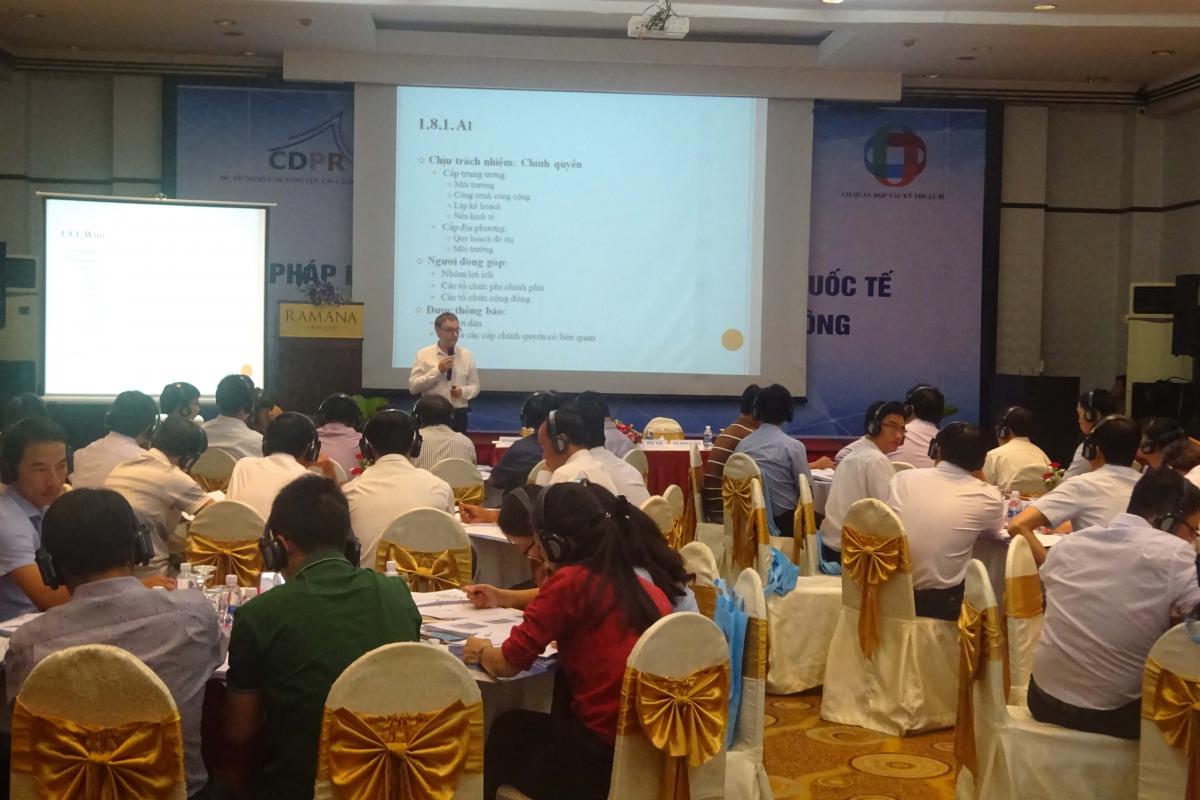
Training workshops for Local Governments
Erwin DICKENS | 18/09/2017
Capacity Development for Planning Reform (CDPR) has supported the Ministry of Planning and Investment (MPI) with two more identical training / workshops in Hanoi (August 2017) and recently in Ho Chi Min City (September 2017). The participants were management officers of MPI at provincial, district and commune level. In total some 160 officers participated in lecture and discussions on international experiences on Spatial Planning and Public Investment Planning. Korean and South East Asian as well as relevant Belgian examples were highlighted. The second part of the training consisted of deepening knowledge on Public Procurement in Vietnam as well as Public Private Partnership guidelines. Finally, the workshop concluded op the topic of Leadership and Management skills.CDPR is reaching to its completion end. Actually the ex post baseline survey is about to kick off (completion foreseen end Q4 of 2017). Preparations for ETR are ongoing and programmed in Q1 of 2018.
-

The journey towards empowering the Capacity and Employement Service Board (CESB)
Alexis DE HERDE | 08/09/2017
The mandate of CESB is to contribute to a strong national workforce and performing organisations that deliver quality services to achieve the national development agenda. To achieve this mission, CESB needs to be internally strong as an organisation. Through the Strategic Approach to Capacity Building project (SACB), BTC has provided technical and financial supports to CESB. Organisational Development Coaching is essential to develop CESB internal capacities.Organisational Development Expert CoachingAll the Organisational Development Coaching interventions aim to provide lasting and sustainable organisational change. Through guidance, advice, training and support, CESB staff are able to gain knowledge and execute themandate leading to organisational development. The focus of the Organisational Development Coaching is to continuously improve and enhance organisational, team, and individual performance with an aim of creating awinning culture for all. The Organisational Development Coaching also focused on skills transfer for example byhelping staff create and design workflows and team accountability for day-to-day standardized process. These areconsolidated in a procedure operating manual, which includes the employee handbook, Human Resource policiesand job descriptions for all CESB staff.CESB Handbook Through the services of an Organisational Development Expert Coach, SACB nproject has supported the development of the CESB employee handbook entitled “The Link”. With the support of the Organisational Development Expert Coach, the CESB HR Office under the overall supervision of the CESB senior leadership authored the inaugural employee handbook for CESB that links and helps publish employee-friendly applicable policies and practices. The Link is an accessible handbook covering key areas such as Performance Management, Recruitment, Leave management and Code of Conduct. The CESB Human Resource Office and the Organisational Development Expert Coach worked with the department heads to make sure all departments were aligned.Job description for all Employees need to have clarity on their job specifications, reporting lines, key performance indicators and day-to-day interactions with stakeholders in order to perform at their highest potential. The Organisational Development Expert therefore worked with the internal leaders and job holders to articulate their job descriptions in a standardized format. The Job Descriptions are a key tool that informs performance management expectations, support in recruitment processes, informs learning and development requirements and is ultimately a critical tool for succession planning. It also helps communicate with clarity the technical, behavioural and experience profile for a job. In total 81 Job Descriptions for all the roles within CESB were delivered. It has helped organise all staff to become more engaged with the job thanks to enhanced clarity while improving performance standards.Procedure and Operationnal Manual One of the highlights of SACB’s achievements for Organisational Development is the creation of a revived Procedure Operating Manual which is in line with and relevant to the current organisational structure and mandate of CESB. With the POM, CESB is able to explain the provided services to key stakeholders while cutting on time waste and improving quality and efficiency to deliver.Procedures and policies The fundamental controls for an organisation lies in its procedures and policies. It is through these that management set their intent and guide their employees in the execution of their duties. The SACB project supported thedevelopment of policies with the aim of having clear guidelines for different areas in the organisations. CESB employees get to know their rights, whereas the organisations understand what governance measures to put in place.Advancing the strategic role of HR in Rwanda The Government of Rwanda considers Human Resources Development as instrumental for an efficient and effective delivery of the country’s development targets. Through the services of the Organisational Development Coach and in close collaboration with CESB, the SACB projectorganised a training on "Advancing the Strategic Role of HR in Rwanda”. We can point out three major achievements :1. Unpacking of the HR profession and promotion of specific behaviours that HR professional must embody;2. HR practitioners reflected on strategic HR responsibilities and the position of their department in organisations;3. HR practitioners were exposed to current regional and global trends and best practices in HR Management while promoting networking and the exchange of ideas.Through the SACB project, CESB will continue to benefit from organisational development coaching in the coming months. We will keep you posted !
-
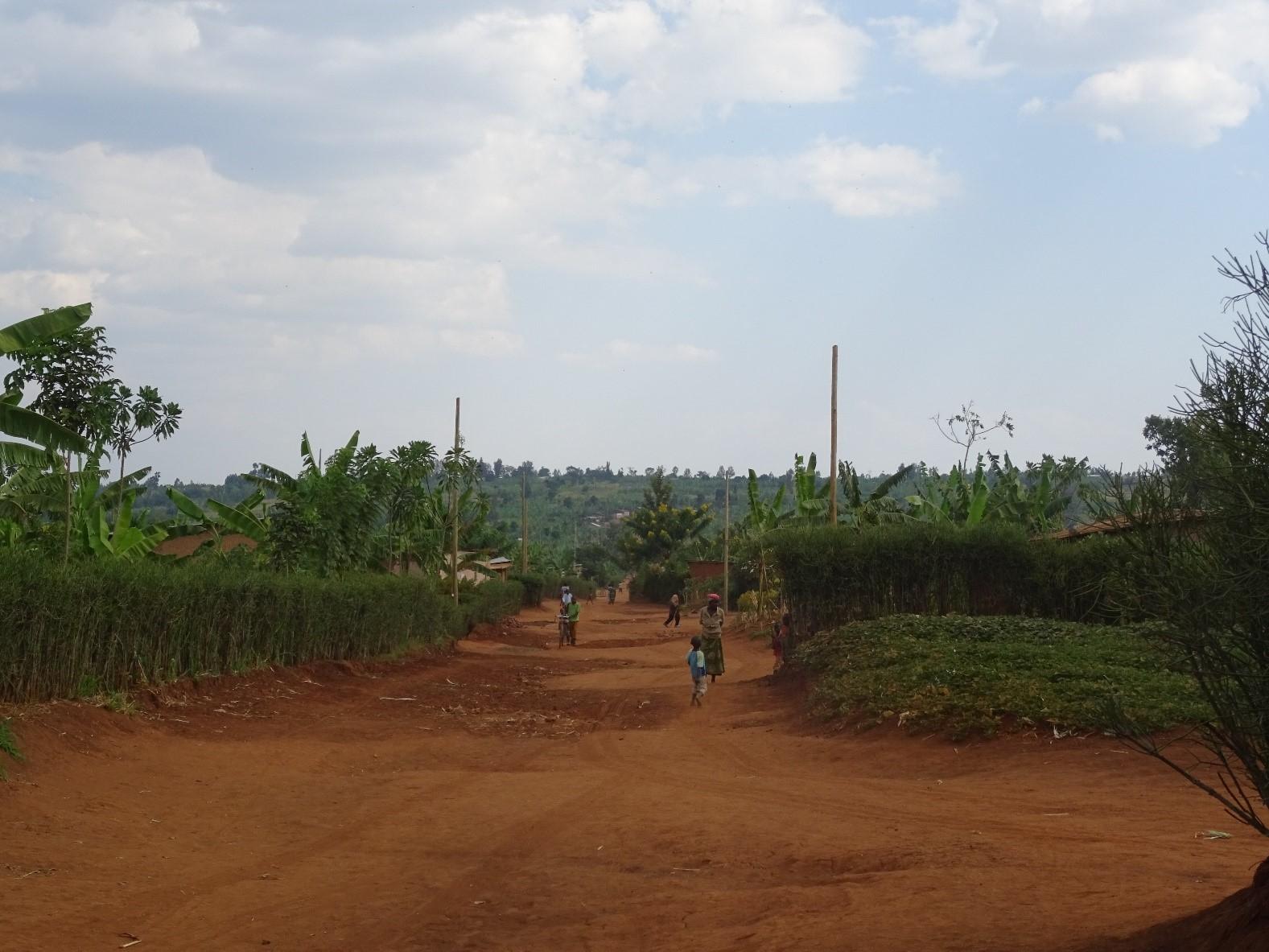
17.000 households to get electricity by next year
Alexis DE HERDE | 08/09/2017
Current access to electricity in Rwanda is estimated at 34.5% of the population including 27.2% connected to the national grid while the remaining 7.3% are accessing electricity through off-grid solutions. Seven years ago, less than 10% of the population was connected to the national electrical grid.In order to ensure that the energy sector contributes to economic growth as set in its development agenda, the Rwandan Government has a target of 70% access by the end of the year 2018 . BTC is one of the main partners in the initiatives to achieve this objective.BTC is supporting electrification in Rwamagana, Kayonza, Ngoma and Kirehe Districts, amongst other activities in the electricity sector, through 3 consecutive supporting programs namely Be1, Be2 and Be3 in the Electricity Access Roll-Out Program within the Rwanda Energy Group. The general objective of the BTC intervention is to ensure that the energy sector is able to provide sufficient, reliable and affordable energy for all Rwandans. By mid-2018, around 17,000 households in 24 rural sectors of 4 districts of the Eastern province will be connected to the national electrical network.As per the Rwandan rural electrification policy, a special target is put on productive users including health centres, schools, administrative offices and markets to name but a few. Around 80 productive or public users will be connected such as schools, health centres, markets or water pumping station.
-
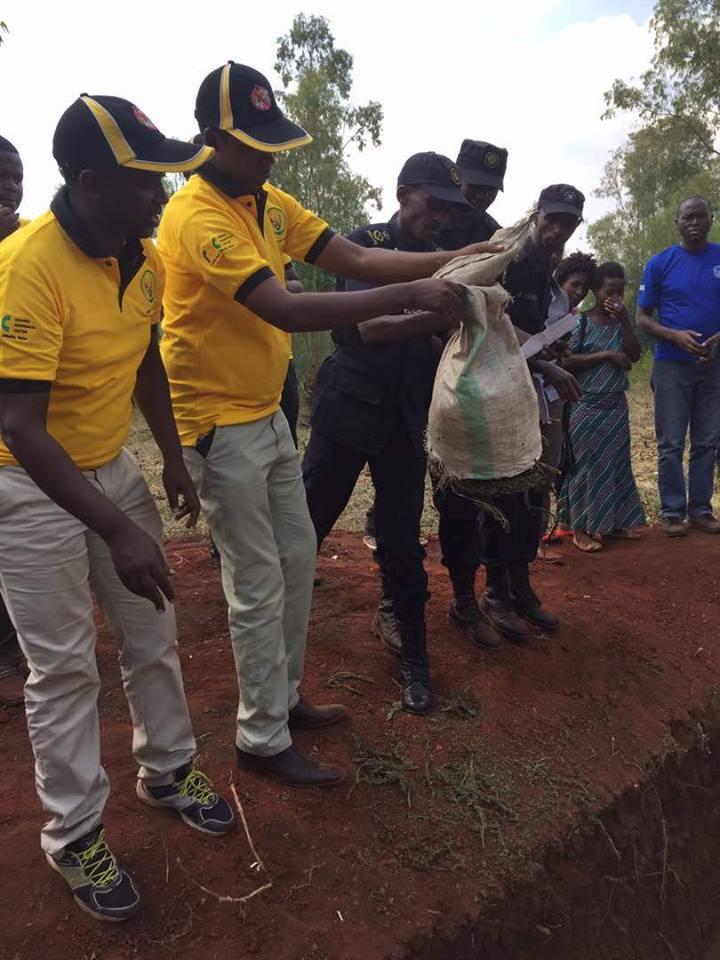
Putting the youth away from the danger of drugs!
Alexis DE HERDE | 08/09/2017
BTC through the programme “Ubuzima Burambye” is funding Rwanda’s national campaign against drug abuse. This activity led by the Mental Health Division of the Rwanda Biomedical Centre (RBC) involves various stakeholders such as the Ministry of Youth and ICT, Ministry of Education, Rwanda National Police, National Youth Council, NGOs including association of Girl Guides and associations of ex drug users.Drug abuse in Rwanda Jeanne D’Arc Dusabeyezu who is in charge of drug abuse prevention and treatment within the Mental Health Division at the RBC exposes the situation in the country: “a recently conducted study by the Ministry of Youth and ICT shows that 52.5% of the youth aged between 14 and 35 years old has consumed one or more substances at least once in their lifetime. Moreover, the age of substance use initiation is on average 11 years old. Due to regular drug use, one young man or woman out of thirteen (7.46 %) is alcohol dependent, one young man or woman out of twenty (4.88%) suffers from nicotine dependence and one young man or woman out of forty (2.54%) is cannabis dependent”. This situation is putting pressure on health care facilities. At Ndera Neuropsychiatric Hospital, the number patients with alcohol and drug-induced mental illness has seriously increased in the last few years from 440 in 2009 to 2804 in 2016. It is clear that without sound actions, Rwanda will face an increasing number of drug addictions. This could become a serious public health issue and an important barrier to development.National anti-drug abuse campaignIn line with the prevention and treatment of mental disorders, the Mental Health Division of RBC and the inter-ministerial committee responsible for fighting against illicit use of narcotic drugs, psychotropic substances and precursors, supported by BTC Rwanda is conducting a national campaign of awareness and sensitization against drug abuse.“We took the opportunity of the spirit surrounding the international day to fight against drug abuse traditionally held on June 26 to mobilize people. There are lots of fake messages such as “Taking drugs will make you stronger and solve your problems”. We have realized how important it is to reach out to the youth with clear messages about their health and the danger of drugs. They also need to know that if they suffer from psychological or mental health problems they have opportunities to consult and be assisted. Taking drugs should never be seen as an option. This is what the campaign is all about” concludes Jean D’Arc Dusabeyezu.The campaign was officially launched on June 22nd in Kirehe district and extended to Huye, Nyarugenge, Gicumbi & Rubavu districts which are at high risk of drug use and drug trafficking particularly those on borders. The campaign will last until December and will be countrywide. Drug use awareness is integrated within a global package of sensitisation on health issues conducted by the RBC & MoH.
-
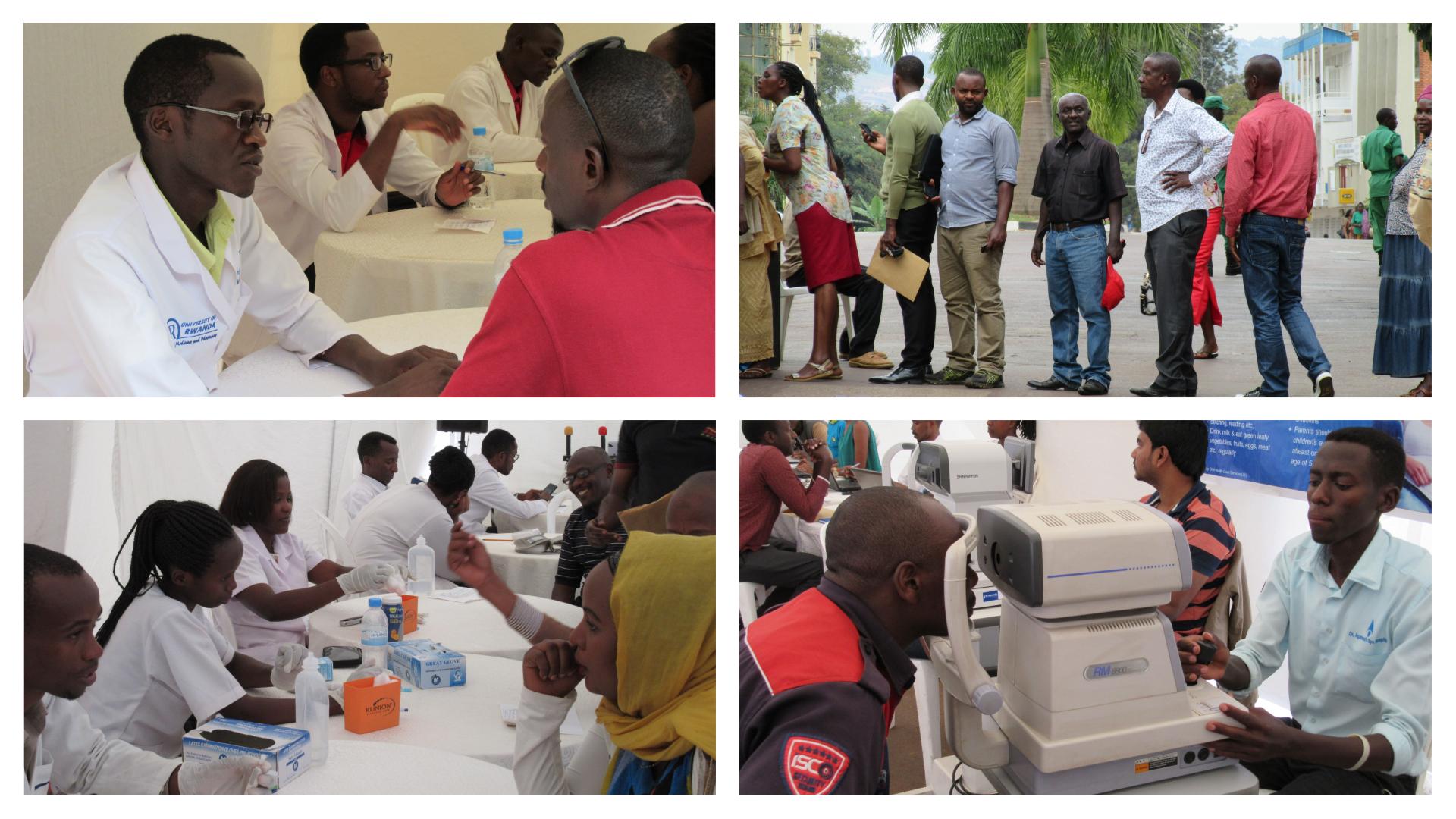
Preventing and countering NCDs in Rwanda
Alexis DE HERDE | 08/09/2017
Last June, a non-communicable diseases mass campaign took place in the car-free zone of Kigali. This initiative was funded by BTC through its health sector programme “Ubuzima Burambye” and its component on urban health.“The programme supports initiatives taken by the City of Kigali (CoK) to fight against non-communicable diseases (NCD) and the associated risk factors. Indeed, there is a continued rising burden of NCDs particularly in urban areas which represents an additional challenge with major implications” explains Public Health Expert Veronique Zinnen.By financing an annual mass campaign, Ubuzima Burambye addresses one of the challenges of rapid growing urbanization and contributes to early detection and prevention of NCDs. Patricie Mukangarambe Director of the Public Health and Environment Unit of the CoK explains: “Each year, the City of Kigali, in partnership with the Rwanda Biomedical Centre and with the funding of BTC, is organizing a campaign to mobilize the population on early detection and prevention of NCDs and associated risk factors. The campaign lasts for one week and enables us to examine and counsel between 3000 and 5000 people.”NCDs, a major health challengeNCDs are one of the major health and development challenges of the 21st century. General public awareness regarding risk factors, prevention and early detection of NCDs is essential. If nothing is done, the human, socialand economic costs of NCDs will continue to grow and overwhelm the capacity of countries to address them.“The problem with the main NCDs - like diabetes & hypertension - is that they are not symptomatic and people do not get themselves spontaneously tested unless complications occurred. Those “silent” diseases do lots of damages and it is why we support this early detection and prevention campaign. We try also to raise awareness on risks associated with NCDs such as overweight, obesity, alcohol consumption, tobacco, etc. This is a very important activity” states Veronique Zinnen.Promoting healthy lifestyle The theme of the 2017 campaign was Promote healthy life style to prevent NCDs”. Throughout the campaign, free screening and counselling activities took place in the car free zone of Kigali. The screening for risk factors suchas overweight and obesity (BMI), blood sugar and blood pressure, detecting diabetes and hypertension was done in collaboration with the RwandaAssociation of Diabetes and Cardio-vascular foundation and conducted by the Rwanda Pharmaceutical Students Association. Dr. Agarwal's Eye Hospital provided equipment and staff for the measurement of visual acuity and intraocular pressure.Free counselling was also provided in order to guide patients to adequate health care facilities. The patients who had abnormal measures were referred to hospitals. In addition, prevention messages were broadcasted onthe radio and disseminated in district hospitals in order to reach more than the population living in Kigali. We estimate that around 3000 people were reached by the 2017 campaign.
-
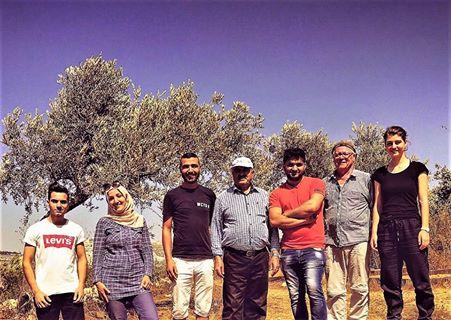
WorldSkills Palestine Team Building Day
Laura SCHILLEMANS | 08/09/2017
There are only a few weeks left until the big adventure, WorldSkillsAbuDhabi2017, and the WorldSkills Palestine team is busy with the final preparations.The core team, the three participants Ibraheem Qawasme for graphic design, Noor Awawdeh for pastry and Ameen Baker for painting and of course the team leader Naser Ghanim, recently went on a successful team building day. In the open nature, after a hike through olive groves, the team discussed various topics. Health safety and environment (HSE) protection, rules and regulations, code of ethics were on the agenda. But also the reflections on the motivation, the necessary personal qualities and attitudes were brought up. Team games and the chance to share own perspective shaped the team further.On the other hand, there were a few worries with the preparation of Noor. Unfortunately, the interaction between the expert and the participant was not as expected. Therefore the necessary level for a successful participation in Abu Dhabi could not be reached. WorldSkills Palestine, the official delegate, the technical delegate and the team leader, explained the situation to the expert. He was offered another chance but unfortunately, the expert refused and announced his departure from the team. WorldSkills Palestine regrets this development and decided to take Noor not as a contestant but as an observer to Abu Dhabi. It will give him the unique opportunity to watch the world’s best young confectioners live at work. As a result, Noor can learn a whole for his personal working career and take a lot of inspiration with him for his future contribution to WorldSkills Palestine. Last but not least: the stakeholders have invited the WorldSkills Palestine team for Abu Dhabi to a farewell party and everyone is invited. So don't forget to write down the date: 20th of September 12:00 at Khalil Sakakini Cultural Centre Ramallah. More detailed information will follow soon at facebook.com/palestineskills
-
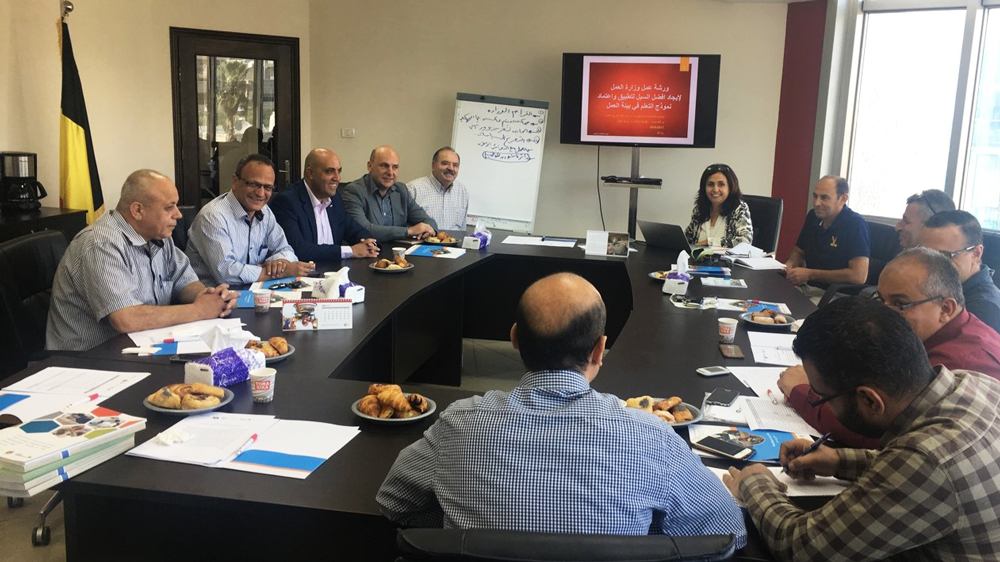
Strategic workshop on institutionalising TVET with the Ministry of Labour
Laura SCHILLEMANS | 06/09/2017
On the 28th of August, The Ministry of Labour and the Belgian Development Agency developed a strategic plan and mechanisms to institutionalise work-based learning schemes in TVET in Palestine. Furthermore, a road map was designed to ensure immediate implementation of the work-based learning schemes in the coming scholastic year. The workshop was attended by different departments of the Ministry of Labour involved in TVET, in the presence of the Deputy Minister of Labour, Mr. Samer Salameh, and by the ECIB team of the Belgian Development Agency. Randa Hilal of Optimum was responsible for the consultancy and training. Similar workshops will take place with the Ministry of Education and Higher Education and the Private Sector as well.
-
The Ministry of Local Government, in cooperation with BTC, has completed four different training workshops
Laura SCHILLEMANS | 30/08/2017
The Ministry of Local Government, in cooperation with the Belgian Development Agency, has completed four different training workshops in the past weeks. The first one was a workshop on the Strategic Development Planning Manual (SDIP/ACIP) in the presence of 33 participants of the project, the ministry, and directorates of the West Bank governorates. Strategic planning plays an important role in promoting the Palestinian society and in contributing to local economic development. The workshop, which took place over 2 days and counted 12 training hours, focused on the participants’ understanding of the concept, objectives, and principles of strategic development planning and on providing them with the knowledge and skills to use the SDIP manual. The second workshop was an orientation workshop on empowering female members of Local Councils in the local government sector. The ministry is keen on giving elected members the opportunity to demonstrate their skills in the councils. The Assistant Undersecretary of the ministry, Mr. Ahmed Ghoneim, emphasized the role of women in general and their role in the local government in particular. Mr. Raed Barghouthi, the Director General of the local rule of Ramallah, praised the work of the elected members of the local councils and of the Ministry of Local Government, represented by Minister Hussein Al-Aaraj, for their relentless efforts to let local bodies be in direct contact with citizens. The following topics were addressed in the workshop: women rights and duties, the importance of their participation in decision making, accountability principles and their participation in urban planning from a gender perspective. Furthermore, a number of female council members elected in the last period had a chance to tell more about their success stories, challenges and lessons learned. The third workshop was dedicated to the financial management of the LGSIP program for the village councils and joint service councils benefiting from the program. Ensuring that the accountants are up to date on the requirements and financial procedures of the program is part of the ministry’s plan to enable local bodies to provide the best services to their citizens. The fourth workshop targeted the civil affairs employees and General Directorate Managers in the planning system and addressed the use of maps and law dimensions. Deputy Minister Mr. Mohammad Hassan Jabarin opened the session by welcoming the 35 participants and he praised the coordination and cooperation mechanism between both ministries of civil affairs and the MoLG. He encouraged both to continue working together to improve the situation of marginalized groups in Area C. At the end, the participants prepared recommendations for the next step focusing on institutionalizing the work by the different parties. Dooa Qutub, Engineer and representative of the Belgian Development Agency attended all workshops implemented in the last period. She also evaluated the workshop with the participants, in full coordination with MoLG direct beneficiaries, to ensure the objectives were met and a follow-up mechanism was put in place.
